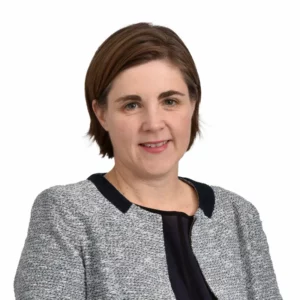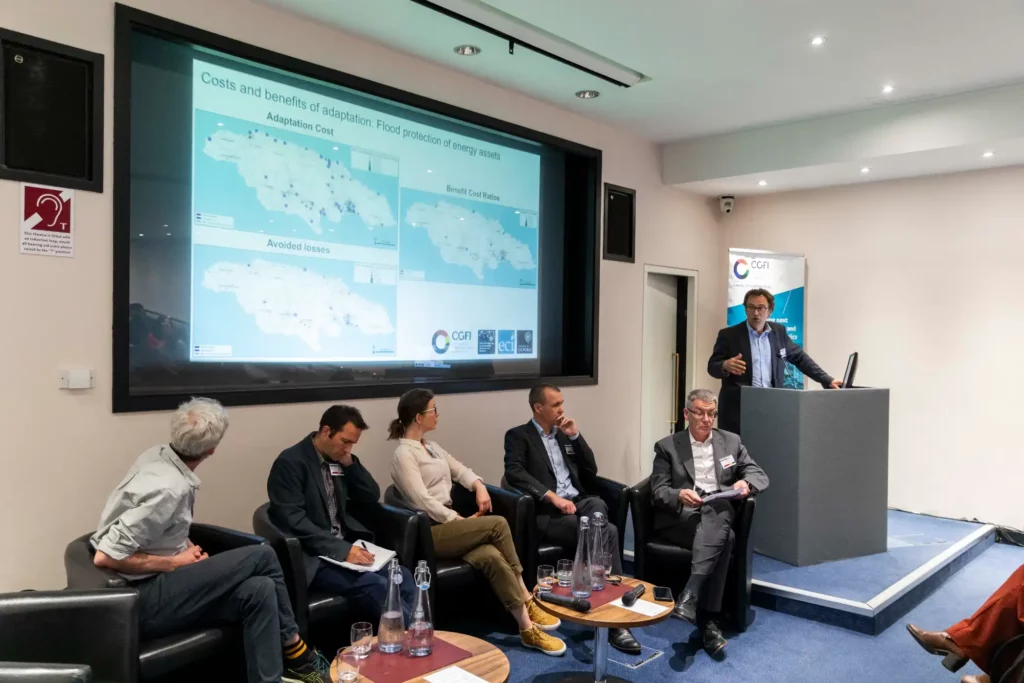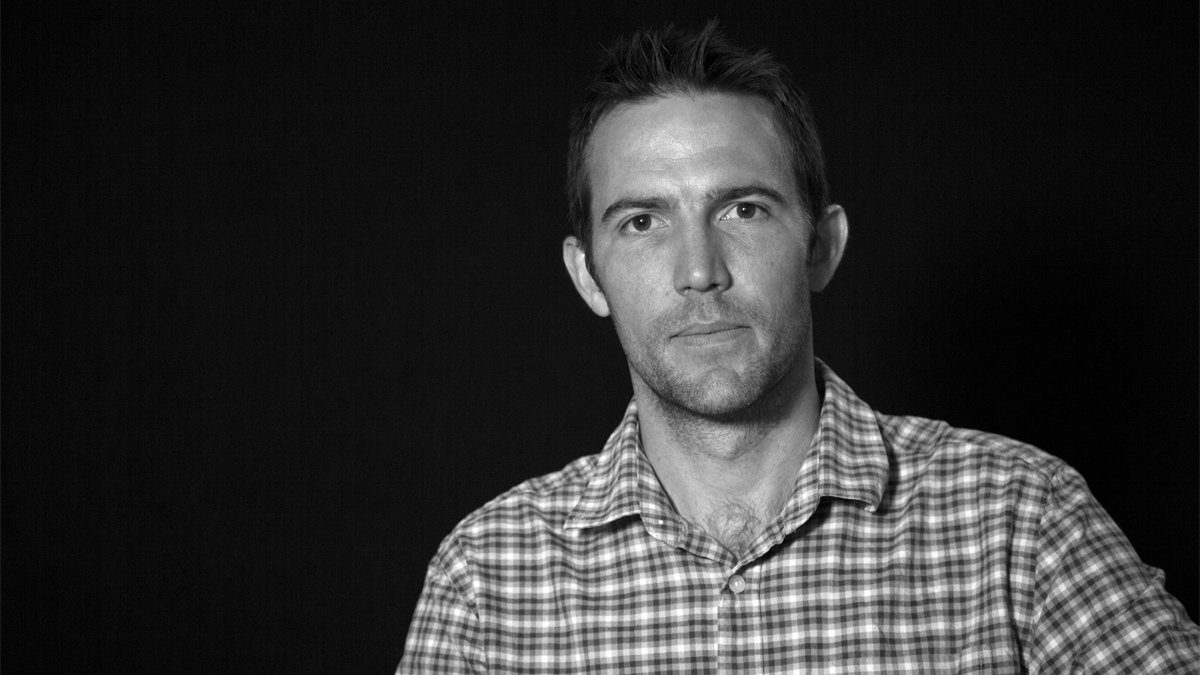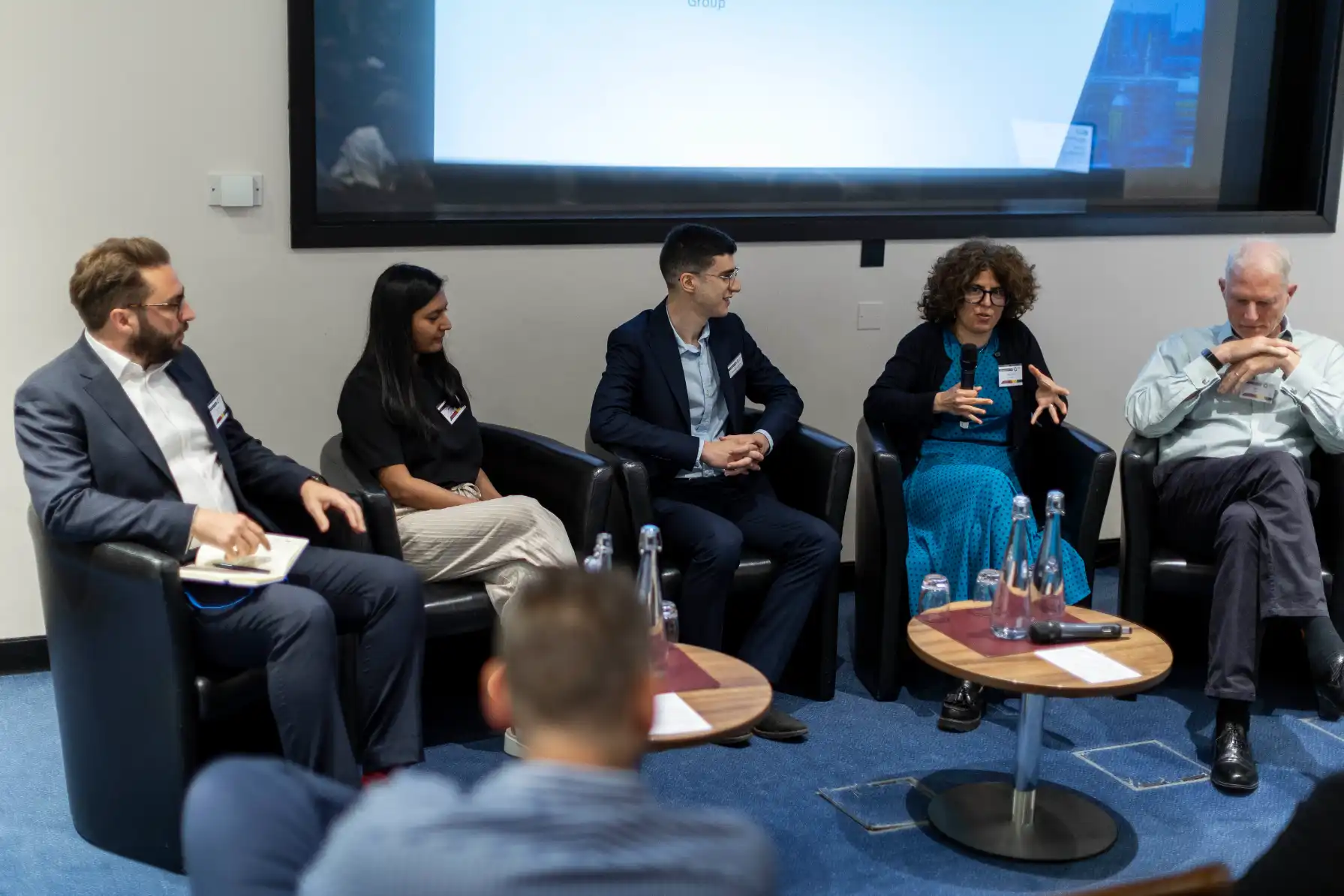
Annual
Forum
2024
Sessions
Welcome to the third CGFI Annual Forum.
Established on the back of the UK’s first Green Finance Strategy, CGFI is a multi-university consortium led by the University of Oxford and supported by UK Research and Innovation. Our mission is to accelerate the adoption and use of climate and environmental data and analytics by financial institutions internationally and act as a platform to connect wider UK science and innovation with finance.
We can be excited by how much has happened over the last decade – when climate was a side-of-desk activity for me at the Bank of England, it was hard to imagine that within ten years we would have over 100 central banks and supervisors working together to green the financial system and over $100 trillion of assets committed to accelerating the transition to a net zero economy.
But there is still much to do; policy, frameworks and standards for an economy-wide transition are still evolving and the data and analytics required to price climate and nature-related risks remain work in progress.
At the CGFI Annual Forum, we bring together our brilliant community of world-leading academics, financial practitioners, data and analytics providers, policymakers and regulators to explore and address these challenges. So many thanks for joining us – let’s get started!

Executive Director, CGFI
KEYNOTE: VANESSA HAVARD-WILLIAMS
Chair, Transition Finance Market Review
The Transition Finance Market Review was launched earlier this year, tasked with independently gathering and analysing evidence to assess how the UK can establish itself as a global hub for transition finance. To meet our nature and climate objectives we must scale up finance for the infrastructure and technologies to transition the global economy and put it on a resilient footing. The benefits substantially outweigh the costs, and capital must be directed thoughtfully to maximise impact.
All of this will require investors, issuers and other stakeholders to be aligned to be able to act with confidence, supported by necessary market principles, frameworks and relevant regulation.
Our call for evidence received nearly 60 responses from financial and professional services, civil society and corporates and trade associations. That will inform practical recommendations primarily to industry to unlock transition finance
The UK financial services industry has always been a global centre of innovation. With our strength in financial and insurance markets, professional services, cutting edge data and clean tech, sustainable finance professionals, and our strength in terms of universities, we have a strong foundation from which to shape bankable strategies and create a dynamic and effective transition finance ecosystem.
POLICY, FRAMEWORKS AND STANDARDS
FOR AN ECONOMY-WIDE TRANSITION

Kate Levick (chair)
Associate Director - Sustainable Finance, E3G

Kaya Axelsson
Head of Policy and Partnerships, Oxford Net Zero

Diana Fox Carney
Senior Adviser, BeyondNetZero

Mark Manning
Principal Advisor, Regulatory Affairs, IFRS Foundation

Emily McKenzie
Technical Director, TNFD
Nearly a decade on from Mark Carney’s seminal ‘breaking the tragedy of the horizon’ speech, the landscape of policy, frameworks and standards continues to evolve. For example, focus is shifting beyond managing transition risk to the need for transition plans, transition planning and the mobilising of transition finance. And topics such as adaptation, resilience, nature-related risks and nature finance are quickly rising to the top of the agenda.
This panel explores some of the latest developments in the policy and regulatory landscape, future trends and implications for climate and environmental data and analytics. As we approach 2030, key challenges remain, include closing the adaptation financing gap, moving from voluntary to mandatory disclosure, accelerating implementation and managing the complexities of embedding standards into legal frameworks across multiple jurisdictions.
CLIMATE FINANCIAL DECISION-MAKING IN THE CONTEXT OF DATA AND ANALYTICS

Jo Paisley (chair)
President, GARP Risk Institute

Chris Dodwell
Global Head of Policy & Advocacy,
Co-Head Sustainability Centre,
Impax AM

Tony Rooke
Executive Director, Head of Transition Advisory, Howden

Diandrah Soobiah
Director of Responsible Investment, Nest

Billy Suid
Head of Climate Risk, Barclays

Aga Siemiginowska
Head of Sustainability, Oakley Capital
While we have made collective progress on integrating climate and environmental data and analytics into finance, data gaps and analytical capabilities continue to be seen as a key barrier. And with nature and broader biodiversity concerns rising in important, data needs continue to evolve. At the same time, we are also experiencing the emergence of new, potentially transformative tech potentially opening up new opportunities to integrate CER data and analytics at speed scale.
This panel explores the state of climate and environmental data and analytics applications in finance, sharing perspectives from industry on the last decade of progress integrating CER data and analytics and emerging analytical frontiers
ASSESSING NATURE-RELATED RISK:
ARE TODAYS’ ANALYTICS GOOD ENOUGH?

Pernille Holtedahl (chair)
Research Fellow, Centre for Climate Finance and Investment, Imperial College London

Jimena Alvarez
Research Associate in Resilient Systems & the Environment, University of Oxford

Jenni Ramos
Lawyer, Commonwealth Climate and Law Initiative

Richard Mann
Climate Risk Analytics Director, Lloyds Banking Group

Sharon Brooks
Head of Nature Economy, UNEP-WCMC
Nature and biodiversity related-risks have rapidly risen on the agenda of policymaker, regulators and financial institutions. Assessing nature-related risks is the first step in nearly all frameworks out there.
But robust, decision-grade data has been a sticking point to date. Building on experience from practice and civil society, the panel and opening speakers explore where we really are today on the state of data and analytics to assess nature-related financial risks.
FIRESIDE CHAT – GREEN INVESTING

Puninda Thind
Finance Nature Lead, Climate Champions Team

Iain Clacher
Professor of Pensions and Finance, University of Leeds

Adrian Barnes
Head of Green Analytics, Macquarie Asset Management
This fireside chat explores green investing, robustness in data and analytics, and integrating climate and nature in investment management decisions, with perspectives from research, civil society and asset management on translating and applying insights in industry.
TIPPING POINTS AND MANAGING UNCERTAINTY

David Carlin (chair)
Head of Risk, UNEP-FI

Jason Lowe
Chair in Interdisciplinary Climate Research, Priestley Centre, University of Leeds

Catherine Bremner
Chief Commercial Officer, Impax Asset Management

Andy Wiltshire
Head Earth System and Mitigation Science, Met Office

Oliver Bettis
ESG Actuary. Institute and Faculty of Actuaries
The topic of climate risk has moved from niche to mainstream over the last decade. At the same time, more is still required to enable market participants to more fully understand the unique characteristics of climate risk, including the possibility of tipping points, tail risks and how to balance the foreseeable nature of what’s ahead with the uncertainty of how specific risks may crystallize across different spatial and time horizons. This panel dives deeper into these topics, supported by the latest insights including from CGFI and leading practitioners and regulators
SCIENCE FOR GREENING FINANCE: KEYNOTE & RESEARCH SHOWCASE



Ben Groom
Dragon Capital Chair in Biodiversity Economics, University of Exeter

Jim Hall
Professor of Climate and Environmental Risk, University of Oxford

Franziska Schrodt
Professor of Earth System Science, University of Nottingham

Len Shaffrey
Professor of Climate Science, University of Reading

Matt Foote (chair)
Head of Climate Risk Intelligence, Howden

Tom Oliver
Professor of Applied Ecology, University of Reading
Research is a key enabler of progress and innovation to support the greening of finance. Our research showcase session featured leading academics sharing cutting-edge research (including NERC-funded research from CGFI and the Integrating Finance for Biodiversity programme) and discussing key challenges and opportunities for research and industry collaboration. Participants discussed research frontiers, industry needs, and how to collaborate effectively with academia. Discover their exciting research above.
Dr Iain Williams, Director of Strategic Partnerships at NERC, also discussed CGFI’s progress in the context of NERC’s Greening Finance portfolio, and the role of NERC in generating and making available decision-relevant data.
Keynote: Iain Williams
Director of Strategic Partnerships, NERC
INNOVATION SHOWCASE

Innovation in climate data and analytics is essential to deliver tools for the financial industry to reach its net zero goals. CGFI’s latest research on the landscape of green fintechs in the UK has uncovered a vibrant and growing ecosystem of green fintech start-ups in the UK, represented in our panel of innovators.
Discover the participating businesses below:
KEYNOTE: CHRIS SKIDMORE
Chair, Net Zero Review
In the five years since I signed the UK’s net zero commitment into law, over 80% of countries – representing 93% of global GDP – have signed up to a net zero target. In Ernest Hemingway’s, The Sun Also Rises, one of the characters is asked how he went bankrupt. ‘Two ways’ he replied, ‘Gradually and then suddenly’. Those who invest in fossil fuels, including private equity investors who continue to prop up the industries of the past, will gradually, then suddenly, fail.
Net zero is an essential and urgent part of future economic growth. In the Net Zero Review, I set out how delivering net zero could be the economic opportunity of our generation, creating over 450,000 new additional jobs, bringing with it £1 trillion in private inward investment.
We need to provide investors and private capital markets with confidence that the UK is open for net zero business. That requires certainty, clarity, consistency and continuity of policy frameworks, and a long term approach that provides stable investment conditions.
We have no choice but to transition people towards the jobs of the future, the industries and businesses of the future, because there is no alternative. Jobs in the UK oil industry have fallen from 450,000 to 200,000 in the past ten years, and continue to fall. It makes no sense to create stranded communities by offering them promises of a future that no longer exists.
Already in the US, every dollar invested through the Inflation Reduction Act or the Build Back Better Act has been accompanied by a private investment equivalent of over 5 dollars. In the UK, in one example of public private partnerships, Bristol City Leap saw £7 million of public funding unlock £435 million of private funding to decarbonise the city’s housing estate and heat networks.
We need to be prepared to invest ahead of tipping points. The reality is that net zero and sustainability is here to stay: no government can alter the reality of market forces, which are moving to recognise that the only future we have – not just environmentally, but economically – is a sustainable future.









